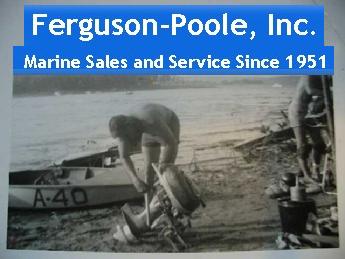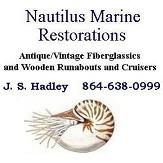THE ANTIQUE & CLASSIC BOAT SOCIETY, INC.
PRESS RELEASE
The Board of Directors of The Antique & Classic Boat Society (ACBS) announced today that it has approved a change in its boat classification structure and show eligibility criteria to include certain boats of a more recent vintage under the definition of classic boats. According to Teresa Hoffman, President of ACBS, “The classic boating hobby has evolved and changed considerably since the ACBS last changed these parameters in 2002”. In keeping with the original vision of the founders of ACBS, many boats constructed between 1975 and the year 25 years prior to the current year will be considered as “late-classic”. This new designation applies to both wood and non-wood boats. The new category excludes boats of a certain hull type such as pontoons, inflatables and small personal watercraft.
This change has no effect upon the current designation of “Historic” (any boat built up to and including 1918), “Antique” (any boat built between 1919 and 1942, inclusive) or “classic” (any boat built between 1943 and 1975).
ACBS recognizes the popularity of these “late-classic” boats and the growing crowd appeal at ACBS sanctioned boat shows for these boats with their distinctive styling and design. Peter Stephens, Executive Director of ACBS, said “As a result of our recent Strategic Planning session, it was clear that our membership felt it was time to revisit our definition of a contemporary classic boat. As the recognized leader in the antique and classic boating hobby, it was an appropriate time to formally update our designations and definitions.”
In addition, a comprehensive survey of ACBS chapter executives revealed resounding support throughout the organization for these initiatives, with an overwhelming percentage of respondents in favor of the change, and agreeing that non-wood boats had an important place in the ACBS. It is clear that our grassroots-members appreciate and respect vintage boats of all types and welcome anyone who shares this passion to their shows and events.
ACBS is the world’s largest vintage boating society with nearly 14,000 members and 56 chapters. Based in Clayton, NY, its mission is the preservation, restoration and education related to antique and classic boating by bringing together its members and numerous other stakeholders, such as museums, suppliers and restorers & builders of boats. ACBS also provides scholarships to students, who are learning boatbuilding and restoration skills and who attend approved boatbuilding schools.
ANNOUNCEMENT
EXECUTIVE DIRECTOR E-NEWSLETTER
Your Board of Directors is announcing that at the Lake Chatuge, GA Board Meeting, it approved a change in our policy to include certain boats of a more recent vintage under the definition of classic boats. The classic boating hobby has evolved and changed considerably since the ACBS last changed its definition in 2002. Therefore, in keeping with the original vision of the founders of ACBS, certain boats constructed between 1975 and the year 25 years prior to the current year will be considered a “late-classic”. This new designation applies to both wood and non-wood boats. The new category excludes boats of a certain hull type such as pontoons, inflatables and small personal watercraft.
This change has no effect upon the current designation of “Historic” (any boat built up to and including 1918) or “Antique” ( any boat built between 1919 and 1942, inclusive).
The Board recognized the popularity of these “late-classic” boats and the growing crowd approval at our boat shows for these boats with their distinctive styling and design. As a result of our recent Strategic Planning session, it was clear that our membership felt it was time to revisit our definition of a contemporary classic boat. As we close in on our 40th Anniversary, it was an appropriate time to formally update our designation. This change is consistent with the vision of one of our founders:
Hello Peter and fellow ACBS members,
The subject of embracing fiberglass construction into the family of boats that attend ACBS shows for display and judging has been raised, and as a founder of ACBS I have been asked to give my perspective of the original goals established for this organization. In order to attempt to give an answer to the question, please allow me to present the foundation and history behind my thinking and what I believe the other founders would agree with.
Prior to the beginning of the 1800’'s boats were made of wood and were powered by wind & sail, oars or current flow, during the 100 year span of time from 1800 to 1900 steam, diesel, gasoline, naphtha, and electric propulsion were introduced, and ships and boats started to be built of iron and steel, along with traditional wood.
During the 1900s diesel and gasoline engines became the norm, ships were built of steel, pleasure boats were built of wood, plywood, laminated wood, laminated fabric, aluminum, steel, and fiberglass, which shows that the past two hundred years has been a very fertile period of invention and evolution, with fiberglass being another way of building boats.
With additive manufacturing (3-D) of boats eventually displacing fiberglass, does fiberglass then become acceptable?
The Vision Statement and Mission Statement on page III of our beloved Directory, in my firm belief, expresses the intent and desires of the founders of the ACBS in putting this wonderful organization together.
In my opinion fiberglass boat construction should be accepted in the same manner as other materials, while using guidelines that apply to steel, aluminum, laminated wood, plywood, wood, molded plastic, and other materials that will appear in the future.
All the best to ACBS, co-founder ACBS Joseph W. Fleming
Practically speaking, many chapters already encourage and include fiberglass boats, as well as boats made from other materials, in their shows. This action does not represent a move away from wood but rather an opening of the hobby up to new members by providing a new entry point to get into the antique and classic boating. Most importantly, it expands the definition of classic boating and will ensure that younger generations have the ability to participate in this fun, family oriented hobby. Indeed, many of these new members may well acquire wood boats as they expand their involvement in the classic boating.
As always, please feel free to contact any member of the Board or myself if you should have any questions or comments.









